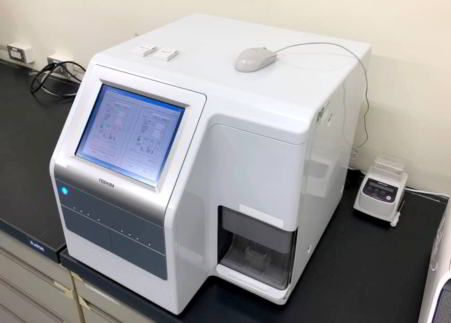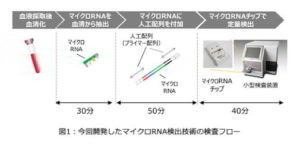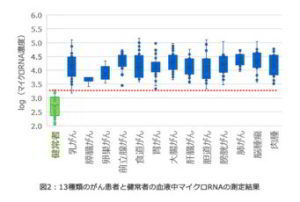
Views: 52
– The developed technology performs detection in two hours from a drop of blood with 99% accuracy.
Minapim by Hernan Valenzuela: Using the original microRNA detection technology, it is possible to identify stage 0 cancer at a rate of 99%. This is the result of a joint research between Toshiba, Tokyo University of Medicine and the National Cancer Research Institute.
The equipment can comprehensively identify patients with 13 types of cancer, such as pancreatic and breast.
The company will announce the details of this technology at the 42nd Annual Meeting of the Molecular Biology Society of Japan to be held in Fukuoka from December 3-8.
Cancer has been the leading cause of death in Japan since 1981. The number of cancer deaths in 2018 was approximately 370,000, and the likelihood of developing cancer in life is 62% for men and 47% for women.
On the other hand, if there is progress in treatment and can be detected early, the survival rate will be significantly improved. For example, for lung cancer, the 5-year survival rate for Stage II is about 60%, but 97% for Stage 0. Even if you have affected, it is an important social issue to improve survival by early detection.
In recent years, about 2,500 types of microRNAs in the blood have attracted attention as a means of detecting cancer simply and highly accurately. We participated in the basic drug discovery technology development project (Development of body fluid microRNA measurement technology) for next-generation treatment and diagnosis by the Japanese Agency for Medical Research and Development.
“Compared to other companies’ methods, we have an advantage in the degree of cancer detection accuracy, the time required for detection, and the cost,” said Koji Hashimoto, chief research scientist at Toshiba’s Frontier Research Laboratory in press interview.
The test will be used to detect stomach, esophageal, lung, liver, biliary, pancreatic, intestinal, ovarian, prostate, bladder and breast cancer, as well as sarcoma and glioma.
Toshiba has developed a chip and small device that can perform diagnostics in less than two hours at a cost of 20,000 yen ($ 180) or less.
In its five-year business strategy from April 2019, Toshiba positions medical companies, including genome analysis and cell diagnostics, among the key growth pillars, along with automation, batteries and digital solutions using artificial intelligence.
Toshiba Group announced a large-scale reinsertion in the medical business, focusing on precision medicine, with “super early detection” and “individualized treatment” in the Toshiba Next Plan.
By using newly developed microRNA detection technology, we can expect early detection with high accuracy. This will enable early treatment and contribute to improving patient survival and quality of life.
Source: NHK (video) Toshiba Japan
Related article: Cancer Immunotherapy – Redundancies in T cells
Related article: Major step towards individual cancer immunotherapy